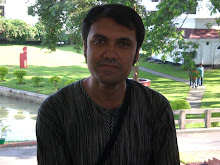Bangladesh forces patrol amid curfew
| Posted 149d ago | Comment | Recommend | E-mail | Save | Print | |
The curfew was enacted Wednesday evening in six cities including Dhaka, the capital. It cleared streets of protesters, forced residents to stay home and temporarily shut down cell phone service.
Authorities lifted the curfew Friday at 8 a.m. and said it would be re-imposed at 10 p.m., the Information Ministry said in a statement. Authorities had also eased the curfew for three hours Thursday afternoon.
Residents welcomed the temporary curfew lift, saying it will allow them to shop for groceries and other necessities.
"This is a right move. We have now enough time to buy food and other essentials we badly need," said Habibur Rahman, a school teacher in Dhaka.
The curfew order came on the third day of unrest after students, whose protests had been largely confined to university campuses, spilled into the streets of Dhaka, burning cars and buses and battling with security forces. One person was killed and hundreds were injured, media reported.
The students are demanding an end to emergency rule, which was imposed in January when President Iajuddin Ahmed canceled scheduled elections, outlawed demonstrations, curtailed press freedoms and limited other civil liberties.
The interim government now running Bangladesh is doing so with the backing of the military, which ruled the country throughout the 1980s. Officials say elections will be held in late 2008.
Students also clashed with police Wednesday in Rajshahi and Sylhet in northern Bangladesh and Chittagong in the southeast. All three cities, along with Khulna, Barisal and Dhaka, were put under the curfew.
Bangladesh's democracy, restored in 1991, has been best known for rampant corruption and a bitter rivalry between the leaders of the two main political parties.
Much of Bangladesh welcomed the military-backed government when it came to power in January, but the protests suggested the beginning of a shift in public sentiment.
"Regrettably, the incumbents decided to take the path of repression," the English-language New Age newspaper said in an editorial. "The public discontent will simmer on and will find manifestation in different forms and style, sooner than later."
___
Associated Press Writer Farid Hossain contributed to this report.


No comments:
Post a Comment